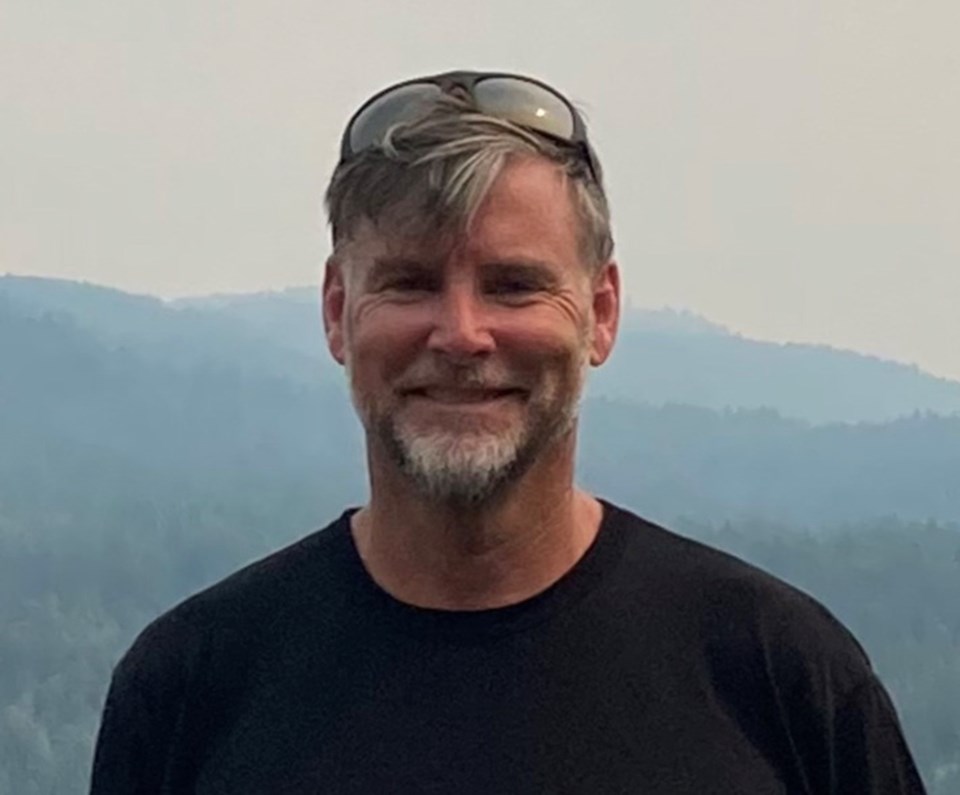ESTEVAN — Anthony Cafik brings not only compassion and understanding to his role as a senior addictions counsellor at St. Joseph’s Hospital in Estevan, but he also understands the challenges of battling addictions.
Cafik has been working in Estevan for about a year, and helping those with addictions for about 18 years, first in the private sector in British Columbia and then in Estevan. He spent 13 years at the Edgewood Treatment Centre on Vancouver Island, and moved on to Cedar’s at Cobble Hill, also in B.C., which has had a close association with St. Joe’s treatment facility.
Before he was a counsellor, Cafik worked in high technology and managed teams throughout Canada, the U.S. and Europe. And he had his own battle with addictions.
“Over time I asked for help, and I decided to enter religious life from there,” said Cafik. “It was a bit of a change, but I felt like I was more caring for people suffering of addiction, and I found connection that I hadn’t experienced before, and it was different from the world of being successful in business.”
Alcohol and drugs filled a void that he was feeling when he was successful in business.
At one point, he spent several years at a seminary and thought about entering the priesthood, but the Catholic Church thought it would be better for him to be trained as a counsellor in addictions. When faced with the decision to be ordained, he found that his desire was to support those fighting their own battle with addictions.
“Edgewood really saw that I had a real gift for working with those with addictions with compassion and empathy, and they had taught me the skills, so that’s where I chose my career path,” he said.
Cafik said he has always seen the need for universal care for those with addictions. Someone shouldn’t receive less treatment just because they can’t afford a private centre.
When Cafik saw Estevan wanted to partner with Cedar’s and bring that level of care to the public sector, he viewed it as a perfect opportunity.
The addictions treatment has been very busy, and after just a year, expanded to 32 beds with a waiting list. They are building a team in Estevan and they are bringing on some new counsellors, he said.
“I don’t know of anyone, really, who’s doing what’s done here at St. Joseph’s,” he said. “We have our own wing in the hospital that was expanded a few months ago. We’re a contained unit, and it’s just really neat to have what I would say is recovery-oriented systems of care.”
Patients have access to various services available at the hospital.
Cafik views addiction as a disease, and it is listed as such in the Diagnostic and Statistical Manual of Mental Disorders. Addiction also has symptoms.
Those who suffer from addictions find themselves in a situation in which once they start, they can’t stop, he said. So it’s important that they not start. Often, he said, they keep it quiet from families and friends because they feel shame.
The brain produces a natural pleasure chemical called dopamine, he said, but an addict doesn’t receive that chemical because the dopamine has been replaced. When the addict stops using, the body crashes and the addict suffers from anxiety, depression and insomnia.
“One thing in treating addiction, you have to be aware of that, and so does the patient. Sometimes an addiction can be hidden and nobody’s talking about it.”
Someone might go to their doctor with insomnia or social anxiety of depression and not talk about their addiction, and then they’re prescribed medication to fix the problem. The physician doesn’t know what’s happening.
“Proper treatment will last longer than 28 or 30 days, because you have to respect the body’s ability to start generating dopamine, its own chemicals, so that you’re balanced, and that’s why we use a multi-disciplinary team with doctors and others to deal with this,” said Cafik.
It’s often not enough to throw someone with addiction into a centre for 28 days and hope they do well once they’re released.
“What we do is we want to set them up for success, so having supports, proper continuing care. We line them up with any doctors they need, proper medications that are appropriate and are not addictive, because sometimes addiction masks the initial mental health issue,” he said.
St. Joseph’s also teams up with external resources and supports like sober living. Once someone is released, they might not have a home to go to, or they might be returning to an abusive spouse.
“St. Joseph’s, and it’s great, has transitional living, and then we’ll also bridge that with different sober living programs. We make sure their environment is supportive for recovery. St. Joseph’s is looking at the whole picture, because we actually want people to get well, fully.”
Success is having the program and the right team, he said. One of the main things is the community built within St. Joseph’s makes people feel comfortable, regardless of where they’re coming from.
“Addiction isn’t biased. It isn’t racist. It doesn’t care,” he said.
People have experienced the care here at St. Joseph’s, and when they’ve struggled, they have come back, he said. They want to connect with what they found in the centre, whether that be in recovery meetings or other services, and “that really says what St. Joseph’s is about,” he said.
The time he has spent in Estevan has been very enjoyable, and he is proud that St. Joseph’s is meeting the need locally and around the province. And Cafik asks people to support it, whether they say it or it’s in their hearts, because that will help make the centre a success.




